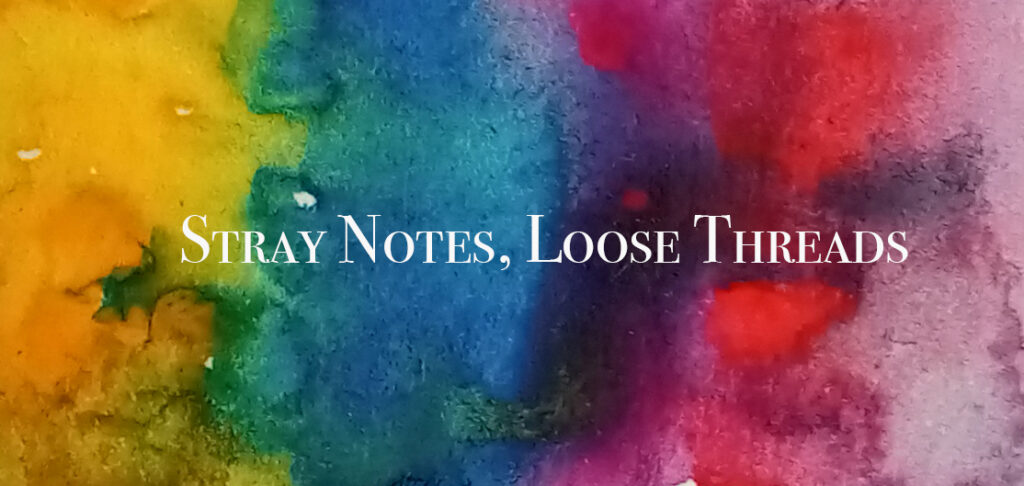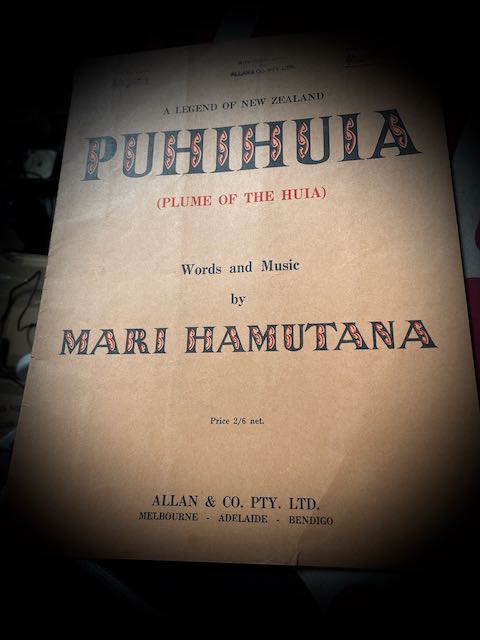The story of Puhihuia and Te Ponga is a 17th Century Māori love story.
Mt. Eden, in days long gone by, was called Maungawhau and was the fortified stronghold of a very large tribe.
Te Ponga came from Awhitu to visit the Maungawhau Chieftain. Te Ponga was a handsome young warrior and while we was at Maungawhau he fell deeply in love with Puhihuia, the daughter of the Chief.
One night, while seated with his host on the marae, Te Ponga called for a drink from his servant but nothing happened. He called again but still no drink appeared. At last the host told his daughter to bring some water for Te Ponga. Te Ponga went out, ostensibly to search for his servant but in actuality, to follow Puhihuia to the water pool. There he told her that she is the water he thirsted for and the two eloped to Awhitu.”
This short version of the story is amongst the most beautiful of Māori tales and you can read about it and its history here.
The choir is now learning a song published in 1940 in Melbourne. The song, Puhihuia (Legend of Mount Eden, is a voice and piano piece by Mari Hamutana, the pseudonym of Ruby Marie King. There is little information on the Internet about either the song or the composer but Ruby Marie King is noted as having “.. lived at Kāwhia, spoke Māori and played with the Māori children” in her own childhood. You can hear another song by Mari Hamutana on this page from Ngā Taonga Sound and Vision and there is a copy of Puhihuia in the Alexander Turnbull Library.
Puhihuia means “plume of the huia”, a now-extinct bird that was noted for its call and plumage. The birds were sacred for Māori and huia feathers were reserved for use only by high ranking Māori as you can read here. The call of the huia has been recreated electronically here and you can also hear it here.
A note on Māori pronunciation. (Adapted from the title page of this song).
Māori vowels are similar to Italian. A=Ah, E=Eh, I=Ee, O is pronounced almost the same as “Awe” and U is the same sound as in “umlaut”. The “ng” sound is like it is in “sing” and “wh” is almost like f but without letting the bottom lip touch the teeth.
The macron above a vowel extends the sound slightly.
A Māori dictionary is at https://www.maoridictionary.co.nz.


Leave a Reply